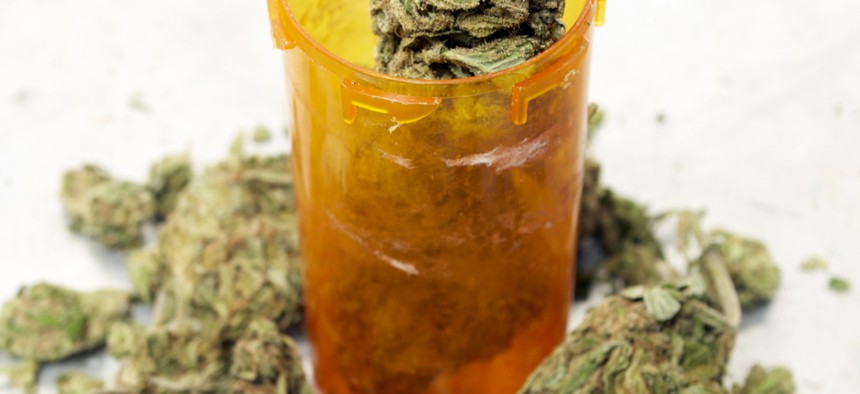Berkeley Mandates Free Marijuana Access for Low-Income Residents

Doug Shutter / Shutterstock.com

Connecting state and local government leaders
City's mayor: "You hear stories about people dying from cancer who don’t have the money."
Next August, low-income Berkeley, California, residents will be able to receive free, high quality medical marijuana from dispensaries to help with the laundry list of ailments for which California allows pot to be prescribed. And while prohibitionists and non-hippies alike have argued it's a bad idea, it's actually an expansion of a system already in place to provide medical marijuana for people who can't afford it.
As The New York Times explains, an ounce of marijuana can set a person back $400, and several people rely on "compassion" (a nickname for free medical marijuana) to treat various illnesses. David Theisen, a 56-year-old line cook who lost his job and uses cannabis for insomnia, told The Times “I can’t afford to buy it, but my need isn’t any less than anyone else’s."
In July the Berkeley City Council voted — unanimously — to mandate that the city's three medical marijuana dispensaries allocate two percent of their product to donate to low-income residents. Low-income translates to $32,000 a year or $46,000 a year for a family of four. The reaction to the rule was either mocking or concern. The Washington Post noted "Berkeley out-Berkeleys Berkeley." An editorial in The San Francisco Chronicle argued that pot isn't medicine and the city should "use the cash equivalent of this requirement to expand job training, build housing or subsidize child care."
But those criticisms ignore the fact that, despite California's lax laws, marijuana is a medicine. At the same time, because it's not legal on a federal level, insurance companies don't cover it. As The Times notes, that leads to a situation where people who would benefit from marijuana can't afford it. “There are some truly compassionate cases that need to have medical marijuana,” Tom Bates, Berkeley's mayor, told The Times. “But it’s expensive. You hear stories about people dying from cancer who don’t have the money.”
And while there are valid concerns — some people might turn around and sell their marijuana on the street, especially if the city's 2 percent mandate proves to be too high — this is a program many dispensaries have already put in place. Sean Luse, the chief operating officer of the Berkeley Patients Group, said the dispensaries had been giving away 1 percent of their product since 1999. “We do this on our own, so we certainly welcome the city mandating that all dispensaries create these sorts of programs,” Luse told Berkeleyside, a local blog.
(Image via Doug Shutter/Shutterstock.com)




